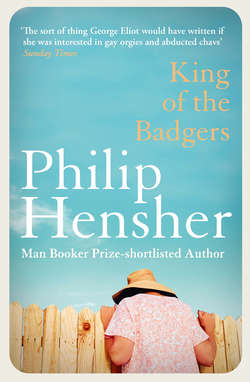Читать книгу King of the Badgers - Philip Hensher - Страница 23
18.
Оглавление‘I wasn’t doing anything wrong,’ the man said. On the table, a range of photographic equipment, a case lying open. A policeman was poking at the back of the camera, trying to get the digital screen to switch on. ‘It’s my job.’
‘That’s right,’ the boyish-looking girl said—she was his assistant, she’d stated. ‘We were just trying to get some good photographs. There was nothing harmful in it.’
‘We’ve got to take every precaution,’ the policeman said. ‘It’s not normal behaviour, now, is it?’
The recreation ground divided into two: the wide open grassy space, where the older kids ran and chased and played adult games, like softball and football, and the playground for the younger ones. With bright-coloured climbing apparatus and ingeniously varied swings and roundabouts, this was a popular place among the under-nines. Barnstaple Council had recently renovated the old playground, replacing the knee-crunching asphalt with some soft substance, putting in new and exotic attractions, and fencing it round. At the moment, there were few places where the young of Hanmouth could enjoy themselves. This was one of them.
That afternoon, a mother deposited her seven-year-old there after school while she went to buy a chicken from the butcher’s for dinner. She had done it before, and thought nothing of it; there were plenty of other children there. She didn’t believe in the existence of the child-snatcher in any case. When she came back, she was surprised to see two adults she’d never seen before: one, a fat bald man, was actually kneeling inside the playground, a large professional camera at his face. He was taking photographs of the children.
‘What the hell are you doing?’ she said.
The other adult, an androgynous figure, made a throat-cutting gesture. The photographer got up briskly and started walking out of the playground, straight past the mother.
‘No, no, no,’ the mother said. ‘You don’t just walk away like that.’
The pair kept on walking. The mother called to her son to stay where he was, and followed them, getting her mobile out and dialling a three-figure number as she walked.
‘You see,’ the policeman said, in the police station, ‘that doesn’t seem a very sensible thing to do in the present circumstances. Does it?’
‘It’s my job,’ the photographer said.
‘You don’t have to photograph strange children playing, do you?’ the policeman said. ‘That’s asking for trouble, I would have thought. In the present circumstances.’
‘I get told what they want photographed, and I do it,’ the photographer said.
‘I’m not charging you with anything,’ the policeman said.
‘That’s good, because he’s done nothing wrong,’ the girl said.
‘Jess,’ the photographer said.
‘But I’m not going to let you walk out of here, for your own safety,’ the policeman said. ‘Feeling’s running very high round here. The lady who made the complaint, who saw you photographing her little boy without permission from her or from Mr Calvin or from anyone else, sees you, a complete stranger, could be anyone, with this case going on, unsolved, the kidnapper at large—do you see what I’m saying? She feels very strongly about it.’
‘Well, I’m very sorry,’ the photographer said.
‘That’s the ticket,’ the policeman said, referring not to the apology but to the camera, which, with a four-note tune, had switched on, showing the last of the photographs. ‘Now. I’m not going to confiscate your camera. I can see it’s the tool of your trade and I think you’ve learnt a valuable lesson here. But I am going to take the memory card out of the camera and keep that while we look at it and what’s on it.’
‘Can’t you look at it now and give it back to me?’
‘I can’t do that,’ the policeman said. ‘We need to look at it very carefully.’
